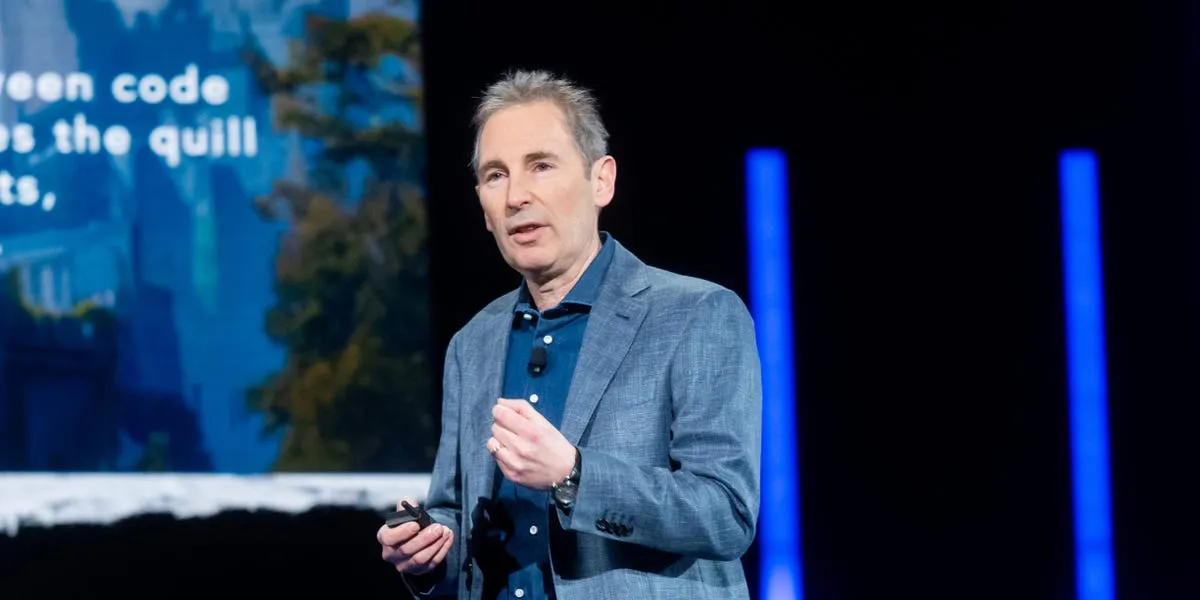
Amazon executives have expressed skepticism regarding Microsoft's recent claims of a significant breakthrough in quantum computing. An Amazon executive characterized the situation as "next level (in BS and hype)," suggesting that the announcements made by tech giants may be more about promotion than substantial progress. Microsoft announced a major quantum computing breakthrough last month, but Amazon's leadership is not convinced by the claims.
On February 19, Microsoft unveiled its new quantum processor, the Majorana 1. The company asserts that this chip employs a novel architecture that could enhance the data storage capacity and allow for more complex calculations than current quantum systems. However, skepticism arose when Simone Severini, Amazon's head of quantum technologies, sent an email to CEO Andy Jassy expressing doubts about Microsoft's claims. According to a copy of the email obtained by Business Insider, Severini argued that the scientific paper published in Nature does not substantiate Microsoft's claims and instead indicates that the new chip could merely facilitate future experiments.
Severini highlighted Microsoft's troubled history with scientific publications, noting that several of the company's earlier research papers had to be retracted due to issues of scientific misconduct. He emphasized that while the Majorana 1 chip represents a potential technical advancement, it is not the groundbreaking technology that has been portrayed in mainstream media. Furthermore, he expressed uncertainty about whether Microsoft's use of topological qubits would yield any real performance improvements.
Internal communications at Amazon reveal a more candid expression of frustration among executives and employees regarding Microsoft's claims. Oskar Painter, head of quantum hardware at Amazon, commented on the necessity to challenge what he referred to as "BS statements," likely referencing Microsoft CEO Satya Nadella's social media announcement about the Majorana chip. Painter expressed a more favorable opinion of the quantum computing efforts from Google and IBM, contrasting them with Microsoft's approach, which he labeled as "next level (in BS and hype)" in an internal Slack message.
As tech companies continue to advance their quantum computing capabilities, there is a growing concern that the competitive atmosphere may lead to more hype than actual progress. Arka Majumdar, a computer engineering professor at the University of Washington, remarked that while Microsoft's technological advancements are impressive, they are insignificant compared to what is required for a functional quantum computer. He noted that the claims being made appear sensational and overhyped, especially since they have not achieved meaningful scale.
Scott Aaronson, a prominent quantum computing researcher at the University of Texas at Austin, pointed out in a recent blog post that Microsoft's assertion of creating a topological qubit has not yet undergone peer review. The peer review comments on Microsoft's Nature report indicate that the results presented do not provide concrete evidence for the existence of Majorana zero modes in the devices described. The report is intended to outline an architecture that could support future experiments rather than claim a definitive breakthrough.
Amazon and Microsoft also differ in their expectations regarding the timeline for practical quantum computing. A Microsoft spokesperson claimed that utility-scale quantum computers are just a few years away, while Amazon's representative anticipates that mainstream adoption is still a couple of decades off. Despite the potential for quantum computers to revolutionize industries over the next 10-20 years, they emphasize that achieving this goal will require significant effort, investment, and commitment across the industry.
Despite the skepticism surrounding recent announcements, Chris Ballance, CEO of quantum-computing startup Oxford Ionics, believes that the influx of quantum-related news is a positive indicator for the industry. He noted that while Amazon's recent chip announcement lacked clarity and substance, it reflects a growing awareness of the importance of quantum computing in future technological roadmaps. Ballance stated, "It shows that people are waking up to the value of quantum computing and the need to address it in their roadmaps."
As the discourse around quantum computing continues, it is clear that both skepticism and optimism will play significant roles in shaping the future of this transformative technology.